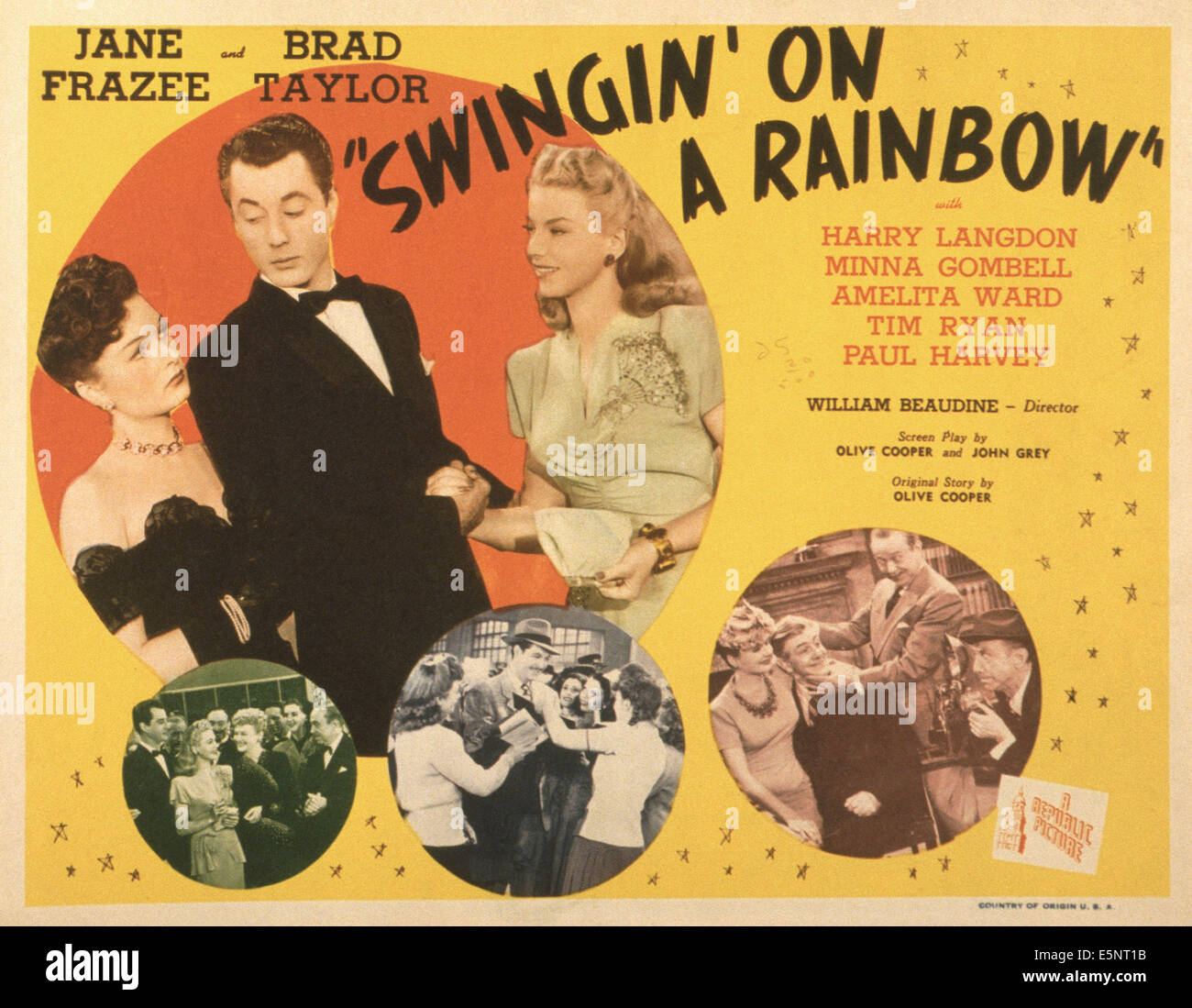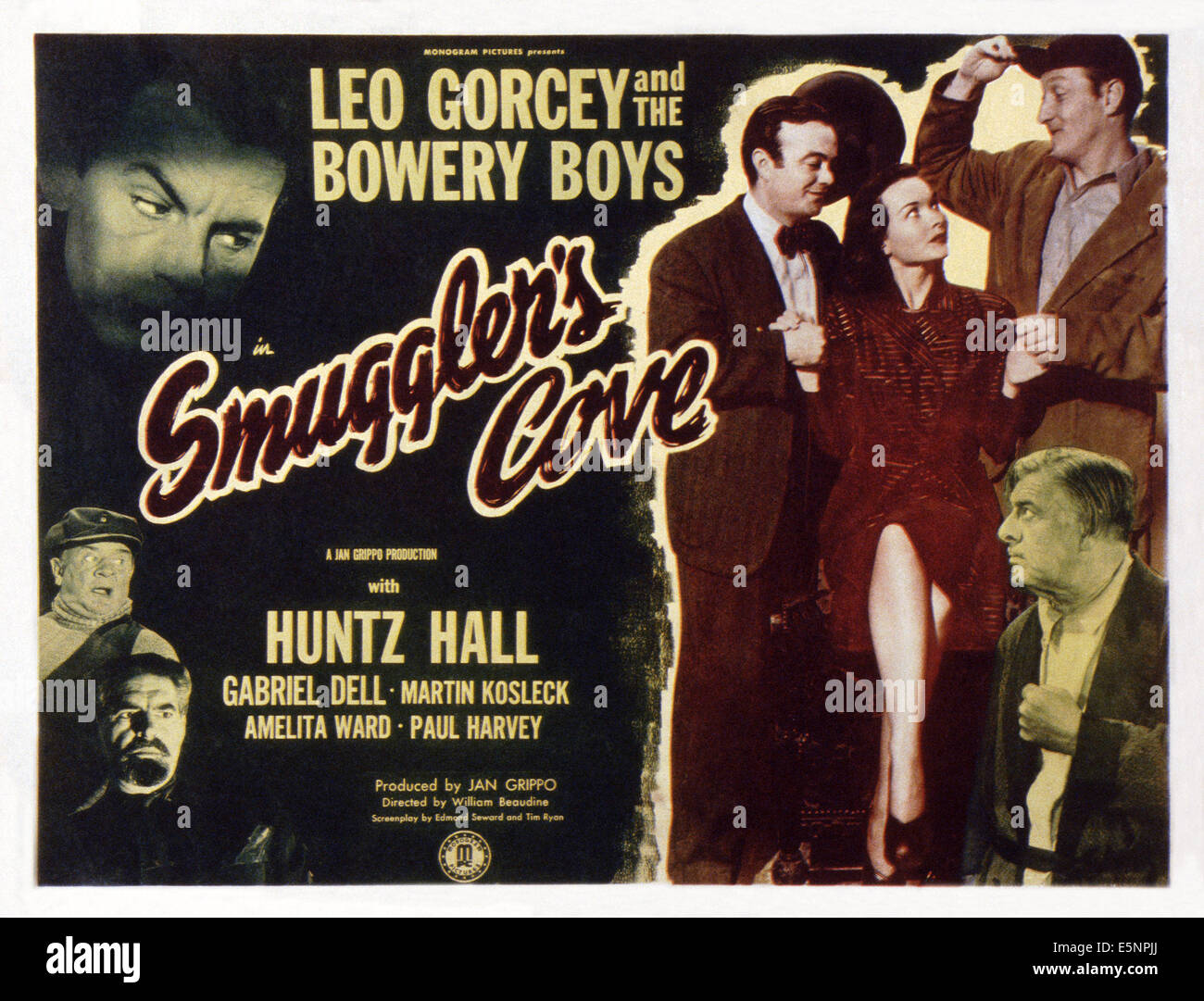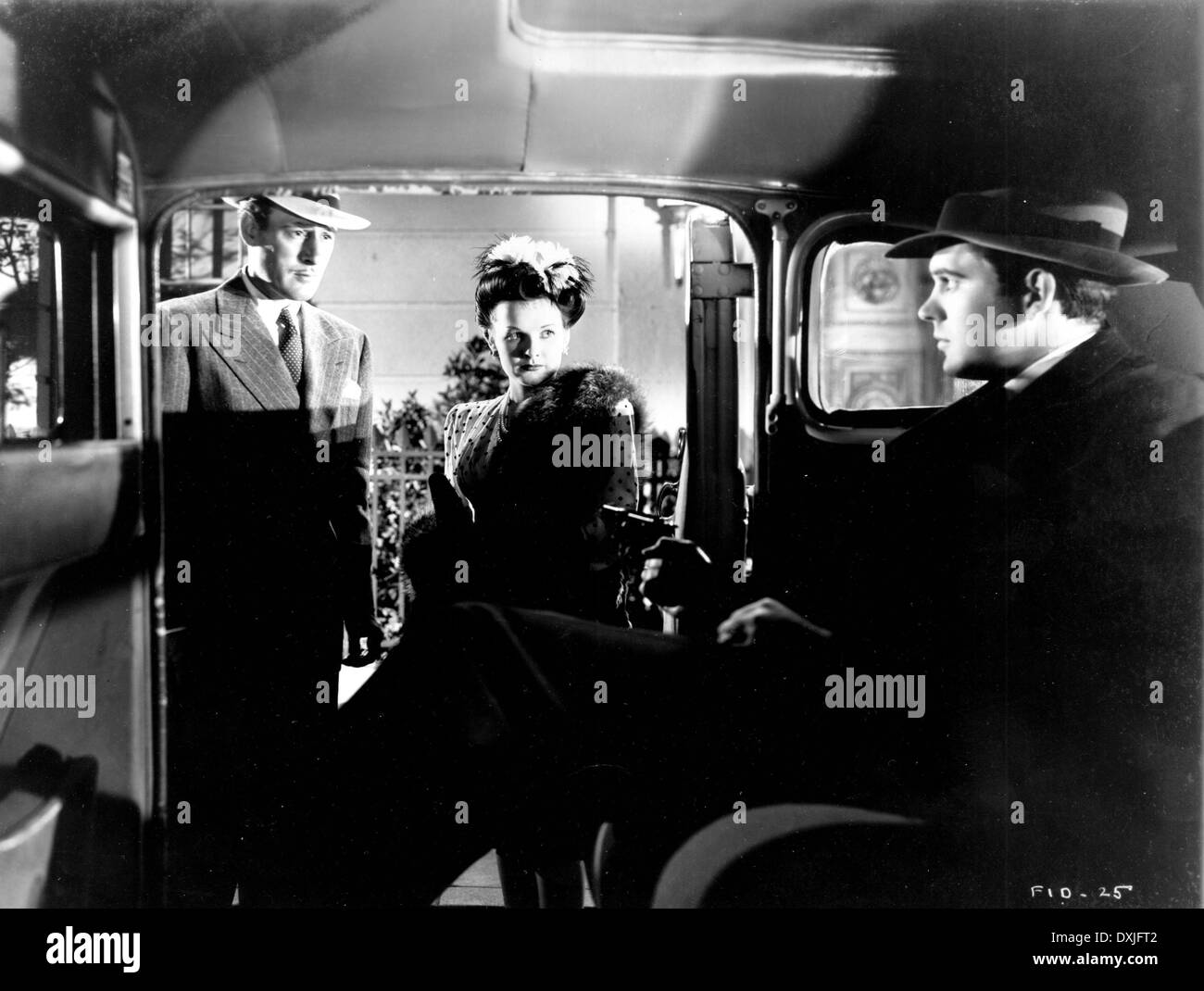Amelita Ward: Unveiling The Life Of A Golden Age Actress
In the vast tapestry of Hollywood's Golden Age, where stars shone brightly and cinematic magic unfolded daily, many talented individuals contributed significantly behind the dazzling lights, often in supporting yet memorable roles. One such luminary was Amelita Ward, an actress whose career, though relatively brief, left an indelible mark on the silver screen during the tumultuous years of World War II. Born in the heart of West Virginia, Ward navigated the bustling studio system, primarily as an RKO contractee, becoming a familiar face in numerous B-pictures and even gracing the cast of an iconic film.
Her story is a testament to the dedication and resilience required to thrive in the competitive world of classic cinema. From her humble beginnings to her contributions to wartime entertainment, Amelita Ward's journey offers a fascinating glimpse into the lives of those who helped shape an era of unparalleled cinematic output. This article delves into her biography, filmography, and the lasting legacy of an actress who, despite often playing supporting roles, was an essential thread in the fabric of Hollywood's wartime narrative.
Table of Contents
- Biography: Amelita Ward - A Life in Film
- Personal Data and Biodata
- The Early Years and a Hollywood Dream
- RKO and the War Years: A Contract Player's Journey
- Notable Performances: The Films of Amelita Ward
- Beyond the Screen: Personal Life and Legacy
- The Hollywood Canteen and Wartime Entertainment
- The Lasting Impact of a Supporting Star
Biography: Amelita Ward - A Life in Film
Amelita Ward's life began on July 17, 1923, in Magnolia, West Virginia, USA. This quiet, picturesque setting was a world away from the bustling film sets and glamorous premieres that would later define a significant portion of her adult life. As a young woman, she harbored aspirations that led her westward, eventually finding her way into the heart of the American film industry. Her career as an actress spanned a crucial period in cinematic history, from 1943 to 1949, coinciding with the peak of Hollywood's wartime efforts and its subsequent transition into the post-war era.
- Why Did Barbra Jean Lose Weight On Reba
- Jennifer Anistons Brother
- Best Beach Pics
- Jedediah Bila In Bikini
- Kate Middleton Pippa
During these years, Amelita Ward became a recognizable face, primarily through her work as an RKO contractee. The studio system of the time often employed actors under long-term contracts, assigning them to various projects, particularly B-pictures, which served as crucial training grounds and reliable box-office fillers. Ward's talent allowed her to appear in over 20 films within this relatively short span, showcasing her versatility and dedication to her craft. While she often played supporting roles, her presence added depth and authenticity to each production, contributing to the overall success of the films she was a part of. Her contributions, though not always in leading roles, were integral to the cinematic landscape of the 1940s, making her a notable figure in the history of American film.
Personal Data and Biodata
To provide a clearer overview of Amelita Ward's life and career, here is a detailed table summarizing her key personal and professional data:
| Category | Details |
|---|---|
| Full Name | Amelita Ward |
| Born | July 17, 1923, Magnolia, West Virginia, USA |
| Died | April 26, 1987, Alexandria, Virginia, USA |
| Cause of Death | Breast Cancer |
| Nationality | American |
| Occupation | Actress |
| Years Active | 1943 – 1949 |
| Known For | The Jungle Captive (1945), Seven Days Ashore (1944), Gildersleeve's Ghost (1944), The Best Years of Our Lives (1946) |
| Spouse | Sidney (last name not specified in available data) |
| Studio Affiliation | RKO Pictures (contractee during war years) |
| Notable Roles | Bonnie Caldwell in The Falcon in Danger (1943), Mary Jones in Gangway for Tomorrow (1943) |
The Early Years and a Hollywood Dream
Born in 1923, Amelita Ward's upbringing in Magnolia, West Virginia, was far removed from the glitz and glamour of Hollywood. Details of her early life are scarce, but like many young Americans of her generation, the allure of the burgeoning film industry must have been undeniable. The 1930s and 1940s were a period of immense growth and transformation for Hollywood, establishing it as a global entertainment powerhouse. For aspiring actors, breaking into this competitive world required not only talent but also immense perseverance.
- Who Is Melissa Mccarthys Sister
- Melinda Trenchard
- Penelope Cruz Parents
- Jeff Bridges And Lloyd Bridges
- Jamie Foxx Sister
Amelita Ward's journey to the silver screen likely involved countless auditions and the determination to make a name for herself. The studio system, while offering stability through contracts, also demanded relentless work and adaptability. Her arrival in Hollywood coincided with the onset of World War II, a time that profoundly impacted the film industry, shifting its focus towards morale-boosting entertainment and patriotic narratives. This unique historical context shaped the early years of Amelita Ward's career, placing her at the intersection of entertainment and national service.
From West Virginia to the West Coast
The transition from a small town in West Virginia to the sprawling metropolis of Los Angeles and the dream factory of Hollywood was a significant leap for Amelita Ward. This geographical and cultural shift underscored the ambition that drove many young individuals to seek their fortunes in the entertainment capital. While the exact circumstances of her discovery or initial entry into the film industry are not widely documented, her eventual contract with RKO Pictures signifies that she possessed the raw talent and screen presence that studio executives were looking for. Her story, in this regard, mirrors that of countless other hopefuls who ventured to California with the dream of seeing their name in lights, contributing to the vibrant and ever-evolving narrative of Hollywood's golden age.
RKO and the War Years: A Contract Player's Journey
Amelita Ward's career was largely defined by her tenure as an RKO contractee during most of the war years. RKO Radio Pictures was one of the major Hollywood studios, known for its diverse output, including musicals, film noirs, and B-movies. Being a contract player meant that the studio had exclusive rights to her services, assigning her roles in various productions. This system provided actors with a steady income and regular work, but it also meant less control over their roles and career trajectory. For Amelita Ward, this period was incredibly prolific.
She appeared in over 20 films between 1943 and 1949, primarily in supporting roles within B-pictures. These films, often produced quickly and on smaller budgets, were crucial to the studio's business model. They filled double bills at movie theaters, providing continuous entertainment for audiences. For actors like Amelita Ward, B-pictures offered invaluable experience, allowing them to hone their craft across various genres and character types. Her presence in these films, such as *Gangway for Tomorrow* (1943) as Mary Jones and *Clancy Street Boys* (1943), showcased her ability to contribute effectively to fast-paced productions, a testament to her professionalism and adaptability during a demanding period for the industry.
The Significance of B-Pictures
While often overshadowed by their A-list counterparts, B-pictures played a vital role in Hollywood's ecosystem, especially during the war years. They were the backbone of the studio system, providing a continuous stream of content and serving as a testing ground for new talent and experimental narratives. For an actress like Amelita Ward, starring in these films meant consistent work and exposure. These movies, despite their lower budgets, were immensely popular with the public, offering escapism and entertainment during a time of global conflict. Her contributions to these films, including her memorable performance in *Seven Days Ashore* (1944), were essential in keeping the American public entertained and engaged, solidifying her place as a reliable and versatile performer within the RKO roster.
Notable Performances: The Films of Amelita Ward
Amelita Ward's filmography, though dominated by supporting roles, includes several notable titles that are still recognized today, particularly among classic film enthusiasts. Her ability to embody diverse characters, even with limited screen time, speaks volumes about her talent and dedication. Her most recognized works include:
- The Jungle Captive (1945): This horror film is perhaps one of her most well-known appearances. As a Universal Pictures production, it allowed her to step into the realm of creature features, a popular genre at the time.
- Seven Days Ashore (1944): A musical comedy from RKO, this film showcased her lighter side. It was a typical wartime musical designed to boost morale, featuring sailors on shore leave. Amelita Ward's role in this film contributed to its upbeat and entertaining atmosphere.
- Gildersleeve's Ghost (1944): Part of the popular "Gildersleeve" series, this comedy-mystery allowed Amelita Ward to participate in a well-established franchise, further cementing her presence in wartime cinema.
- The Best Years of Our Lives (1946): While her role in this critically acclaimed and highly influential film was uncredited, being part of such a monumental production is a significant highlight. The film, which won numerous Academy Awards, depicted the challenges faced by American servicemen returning home after World War II, offering a poignant look at post-war society. Even a small part in such a film speaks to her presence in the industry at that time.
- The Falcon in Danger (1943): As Bonnie Caldwell, this film was an early entry in her career, part of "The Falcon" mystery series, which was popular during the 1940s.
- Gangway for Tomorrow (1943): In this RKO drama, Amelita Ward played Mary Jones, highlighting her involvement in films that often explored social themes relevant to the era.
- Clancy Street Boys (1943): Another early role, this film was part of "The East Side Kids" series, showcasing her versatility across different film franchises and genres.
These films collectively illustrate the breadth of Amelita Ward's work, from horror to musical comedy and drama, demonstrating her adaptability within the studio system. Her contributions, though often in supporting capacities, were essential to the success and narrative richness of these productions, solidifying her place as a reliable and versatile actress of her time.
Beyond the Screen: Personal Life and Legacy
While Amelita Ward's professional life as an actress is relatively well-documented through her filmography, details about her personal life are more private. We know that she was married to a man named Sidney. The available data does not provide his full name or further details about their life together, which is common for many supporting actors of the era whose private lives were not as intensely scrutinized as those of major stars.
After her active film career concluded around 1949, Amelita Ward stepped away from the limelight. The reasons for her departure from acting are not explicitly stated in the available information, but it was not uncommon for actresses of her generation to retire from the screen, especially after marriage or to pursue other life paths. Her decision marked the end of a prolific six-year period where she contributed to over 20 films, leaving behind a body of work that continues to be appreciated by classic film enthusiasts.
Amelita Ward passed away on April 26, 1987, in Alexandria, Virginia, USA, at the age of 63. Her death was attributed to breast cancer. While her career was not as extensively celebrated as some of her contemporaries, her legacy lies in her consistent contributions to Hollywood's Golden Age, particularly during the challenging but creatively vibrant wartime years. She represents the countless talented individuals who formed the backbone of the studio system, ensuring that cinema continued to entertain, inspire, and reflect the times.
The Hollywood Canteen and Wartime Entertainment
While not directly stated as a place where Amelita Ward volunteered, the Hollywood Canteen was an iconic institution during the war years, and its spirit undoubtedly influenced and was part of the world she inhabited as an RKO contractee. On Saturday, October 3, 1942, the Hollywood Canteen opened its doors in a former livery stable at 1451 Cahuenga Boulevard in Los Angeles. This legendary establishment served as a recreational club for servicemen, offering food, entertainment, and a chance to meet movie stars, all free of charge.
Thousands of soldiers, sailors, and other service members passed through its doors, interacting with Hollywood's biggest names and rising talents. The Canteen was a powerful symbol of Hollywood's contribution to the war effort, boosting morale and fostering a sense of connection between the entertainment industry and the troops. For actors like Amelita Ward, who were actively working in films produced during this period, the Canteen represented the collective spirit of an industry united in supporting the nation. Even if she wasn't a regular volunteer, the ethos of wartime entertainment, which she directly contributed to through her films, was deeply intertwined with institutions like the Hollywood Canteen. Her work in films like *Seven Days Ashore*, which often featured military themes, directly fed into the public's need for patriotic and morale-boosting content, aligning perfectly with the Canteen's mission.
The Lasting Impact of a Supporting Star
The story of Amelita Ward is a poignant reminder that Hollywood's Golden Age was built not just on the shoulders of its leading stars, but equally on the consistent, often unsung, contributions of supporting actors. While she may not have achieved household name status, her prolific output during the 1940s, particularly as an RKO contractee, made her a vital part of the cinematic landscape. She played supporting roles in over 20 films between 1943 and 1949, navigating the demands of the studio system and contributing to a wide array of genres, from thrillers like *The Jungle Captive* to lighthearted musicals such as *Seven Days Ashore*.
Her work provided essential texture and realism to the films of her era. In an industry where every role, no matter how small, contributes to the overall narrative, Amelita Ward's dedication ensured that audiences received well-rounded and engaging cinematic experiences. Her presence in films like *The Best Years of Our Lives*, even in an uncredited capacity, links her to some of the most significant works of American cinema. Today, as film historians and enthusiasts delve deeper into the archives of classic Hollywood, the contributions of actors like Amelita Ward are increasingly recognized and celebrated. Her life story, though brief in its cinematic chapter, offers valuable insights into the mechanics of the studio system and the unwavering commitment of those who brought stories to life on the silver screen.
We encourage you to explore the biography, filmography, news, photos, and more about Amelita Ward. Keep up to date on all things Amelita Ward at Fandango today, and discover the rich tapestry of her work that continues to resonate with audiences who appreciate the artistry of classic Hollywood. What are your favorite films featuring Amelita Ward? Share your thoughts and help us continue to build the largest biographies collection on the web by leaving a comment below!
- Claire Dunphy Hot
- Willy Wonka Animated
- Most Popular 70s Tv Shows
- Richard Burton And Elizabeth Taylor Marriage
- Vanna Whites Income

Amelita ward hi-res stock photography and images - Alamy

Amelita ward hi-res stock photography and images - Alamy

Amelita ward hi-res stock photography and images - Alamy